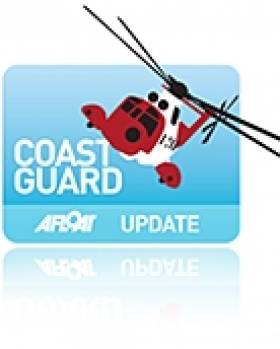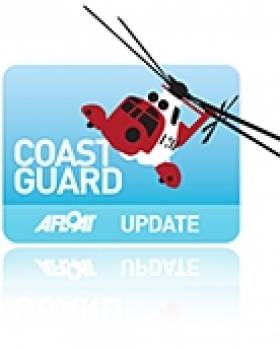Displaying items by tag: John Dallat
MLA Dallat Welcomes Malin Head Reprieve
#Coastguard - East Londonderry MLA John Dallat has welcomed the news that the Irish Coast Guard station at Malin Head will remain open.
The SDLP politician had previously sought the support of Northern Ireland's Minister of State Mike Penning to help protect the Donegal coastguard station from closure in the wake of the 'value for money' report commissioned by Irish Transport Minister Leo Varadkar.
Last week Minister Varadkar made a U-turn on proposals to close one or both of the stations at Malin Head and Valentia Island in Co Kerry, following vocal protests by coastal communities in both areas.
As BBC News reports, Dallat's interest in Malin Head dates back to 1973, when he met divers salvaging items from the wreck of the Titanic sister ship Laurentic, which was sunk by mines off Lough Swilly in 1917.
Dallat joined the crew to salvage for brass and copper machinery from the wreck, but on the way to the site their boat experienced engine trouble.
It was only by contacting Malin Head that they were able to receive assistance from a passing coal boat - and Dallat believes he would not be here today if not for that coastguard radio call.
BBC News has more on the story HERE.
MLA Seeks NI Minister's Support for Malin Head Coastguard
#COASTGUARD - An MLA for East Londonderry has sought the support of Northern Ireland's Minister of State to protect the Irish Coast Guard station at Malin Head from closure.
Inishowen News reports that the SDLP's John Dallat MLA contacted Mike Penning regarding the threat looming over the Donegal coastguard station, which is the most northerly on the island of Ireland.
Dallat said: “When Mike Penning was Minister for Transport in Westminster he was instrumental in keeping the coastguard station at Bangor, Co Down, open, and he made his judgement on the basis that Bangor had a special working relationship with Malin Head which was critical to ensuring there was a complete coverage of all areas."
“It would be ironic now if Malin Head, which saved Bangor, was itself to be victim of closure. That must not happen and I believe Mr Penning’s support is an important element in this campaign which must not fail."
As reported recently on Afloat.ie, coastal communities in both Donegal and Kerry have been protesting plans to close the stations at Malin Head and Valentia in the wake of a 'value for money' report commissioned by the Republic's Minister for Transport Leo Varadkar.
Coastguard chiefs have criticised the studies conducted by consultants Fisher Associates into the IRCG and the Marine Survey Office.
Inishowen News has more on the story HERE.






























































